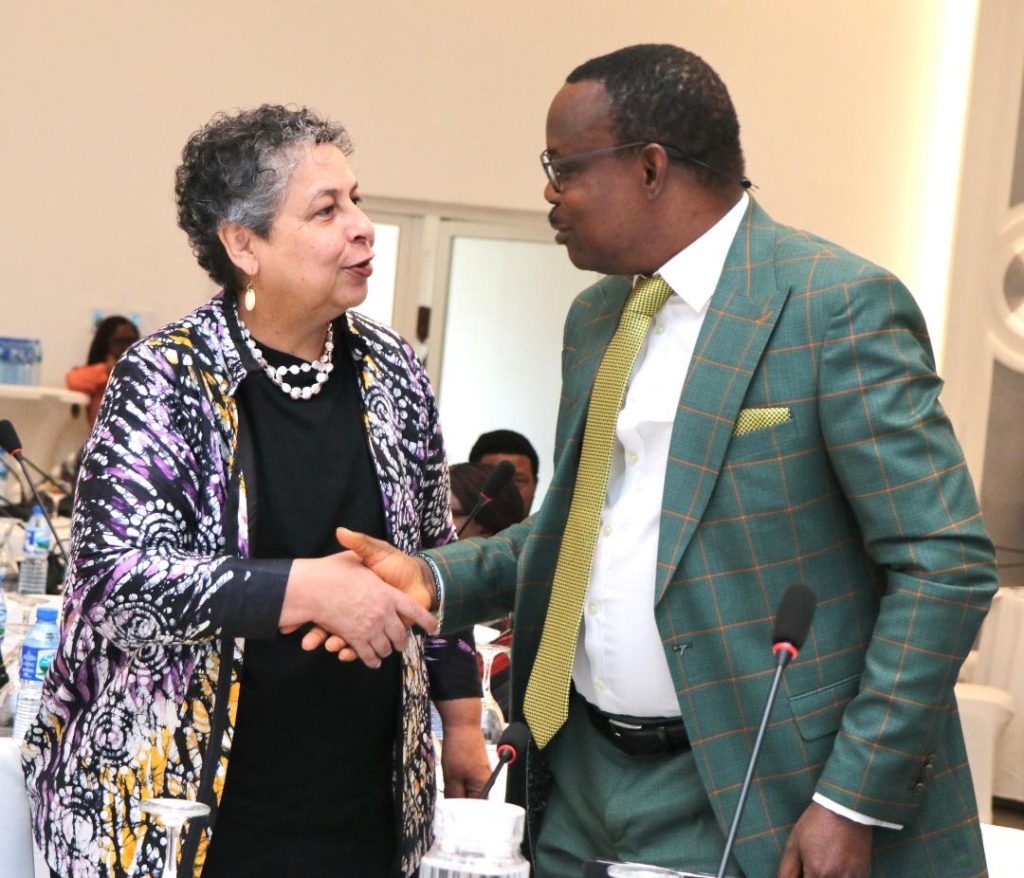
Photo: USAID Mission Director Melissa Jones and Dr. Iziaq Kunle Salako Honorable Minister of State, Federal Ministry of Environment
USAID and SDN host Mangroves Dialogues to address climate change in Nigeria

Photo:
USAID Mission Director Melissa Jones and Dr. Iziaq Kunle Salako Honorable Minister of State, Federal Ministry of Environment

The U.S. Agency for International Development (USAID) and the Stakeholder Democracy Network (SDN) facilitated dialogues between policymakers, regulators, researchers, organizations, mangrove experts, and international partners on Nigeria’s mangroves.
The conference provided a platform for knowledge exchange, collaboration, and identification of solutions to protect and restore Nigeria’s mangroves.
USAID/Nigeria Mission Director Melissa A. Jones said, “Let us not forget that a the center of conservation are the people who live in and interact with these mangrove forests. Let us empower them with the knowledge and tools to manage resources sustainably, ensuring conservation efforts are not only effective, but equitable and inclusive.”
Nigeria hosts Africa’s largest mangrove forest, primarily in the Niger Delta region. These ecosystems support biodiversity and act as carbon sinks, storing an estimated 1,100 metric tons of carbon emissions. The World Bank values the economic benefit of Nigeria’s mangroves at US $4,700 per hectare per year.
Despite their importance, Nigerian mangroves face loss and degradation. Only 6 percent are under protected status. This loss affects local economies, food security, flood defense, and coastal erosion prevention.
Minister of State, Federal Ministry of Environment, Dr. Iziaq Kunle Salako, emphasized the government’s focus on mangrove conservation and restoration, noting their role in climate mitigation and livelihood improvement.
SDN Country Director, Florence Kayemba Ibok Abasi announced the creation of the Friends of Nigeria’s Mangroves Coordination Group to address these issues. She stated, “We will promote actions that conserve mangroves and support dependent livelihoods.”



